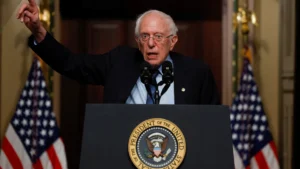
Trump, who defeated Vice President Kamala Harris in the election, had initially backed a temporary cap on credit card interest rates while campaigning in New York. “We’re going to cap it around 10%. We can’t let them charge 25 and 30%,” he said, framing the policy as a solution to help Americans “catch up.”
By the third quarter of 2024, U.S. credit card debt had reached $1.17 trillion, according to MarketWatch. Data from Lending Tree showed that the average credit card interest rate in December stood at 24.43%.
After Trump’s election win, transition spokesperson Karoline Leavitt stated, “The American people re-elected President Trump by a resounding margin, giving him a mandate to implement the promises he made on the campaign trail. He will deliver.”
However, despite Trump’s support for the 10% cap, some Republicans have voiced opposition, arguing that such policies could harm businesses and restrict access to credit.
Incoming Senate Banking Committee Chairman Tim Scott, a close ally of Trump, has been a strong critic of the Biden administration’s attempts to regulate credit card fees and other aspects of the industry. His office declined to comment on the proposed interest rate cap.
